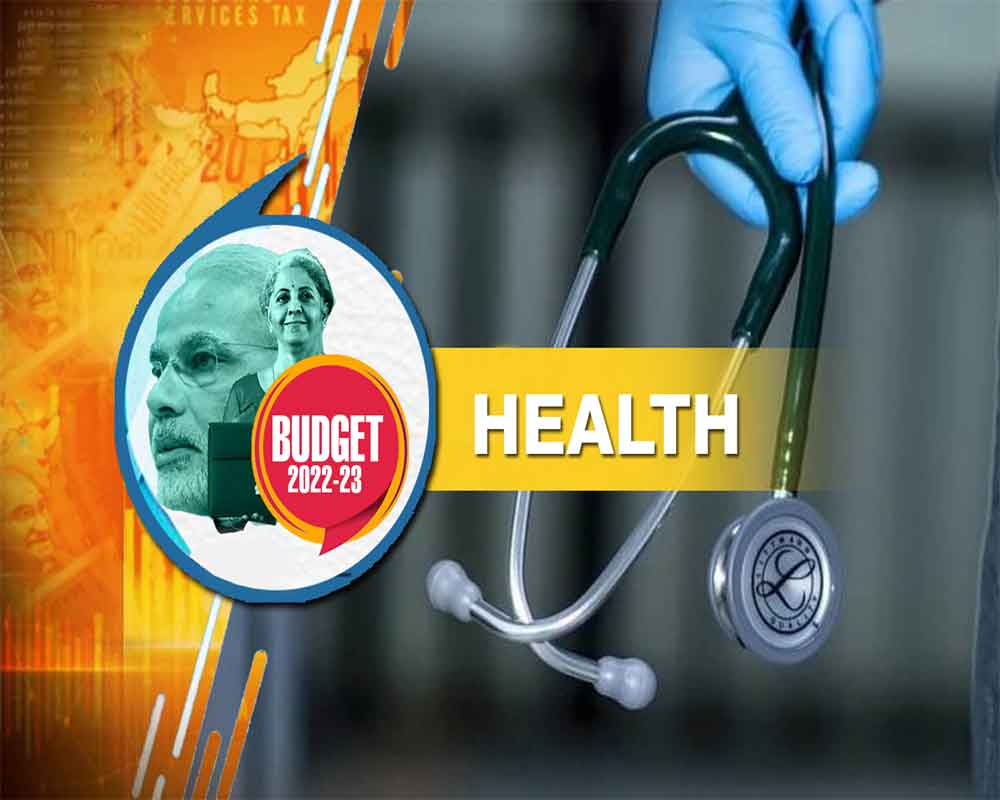The Parliamentary session of the Union Budget is likely to be held on 31 January, 2023 followed by the presentation of the Union Budget 2023-24 on February 1 by Finance Minister Nirmala Sitharaman. Just like every sector of this country, the healthcare sector also has big expectations from this year’s budget. The HEALTH PIONEER reports
It is imperative to build infrastructural capabilities so that people have greater access to quality and critical healthcare services. Viability gap funding by the Government is essential to set up hospitals in tier-1 and tier-2 cities, encouraging increased investment in the healthcare infrastructure. Uniform adoption of Ayushman Bharat Digital Mission is another imperative which calls for clearly defined delivery models for innovative modules developed by private players.
As we prepare for the post-pandemic era, stable policy frameworks and incentives to help the healthcare sector remain viable- investment via FDI, expanding reach, investing in technology and innovation, reinforcing patient safety and adding to the skilled professionals of India.
—Dr Shravan Subramanyam, President, NATHEALTH
Healthcare is under-served and under-consumed. India requires a plan to build a robust and resilient healthcare system, which can only be done by increasing investment (both public and private).
Turning to preventive care is the need of the hour. Despite the fact that it can significantly lower medical costs and detect life-threatening health conditions early, it is undervalued. Therefore, improving testing facilities or diagnostic services in Rural Bharat need to be of the utmost importance.
Additionally, the GST for the healthcare industry needs to be rationalised so that the businesses in the sector may attract more investment and provide services to customers at affordable rates.
Furthermore, healthcare services in tier II and tier III cities need to be strengthened, especially when it comes to hospital facilities, which might be explored using a PPP model.
Additionally, the budget should include a strategy for increasing the availability of healthcare professionals, particularly in Tier 2/3 & 4 towns.
The forthcoming budget should also focus on healthcare digitization because it is a fundamental precondition for providing value-based care throughout India's healthcare continuum. In India's Tier II and III cities in particular, adopting intelligent solutions can help decrease barriers between hospitals and patients, improving access to care and raising overall patient satisfaction.
Furthermore, the Ayushman Bharat Digital Mission should be implemented in all hospitals, especially those located in rural areas. In addition, the implementation of consolidated medical records and digital health ID cards must be emphasised for seamless access to patient data in one location
— Dheeraj Jain
Founder & MD, Redcliffe Labs
Post-Covid, there is a clear focus on investing in the healthcare infrastructure of India. To achieve scale, it is clear that the digital part of healthcare needs direction and a boost. We hope the government allocates more funds to health tech, enabling a large population to be covered with minimal cost.
Especially on mental health, we are seeing mental health issues rising year over year. But last year, we saw a significant and welcome push by the government with the launch of a national tele-mental health program to provide 24x7 free counselling and care to people. On the insurance side, we also had a significant push to cover mental health diseases by IRDA. However, insurers in India seldom offer policies that cover non-hospitalization treatments or OPD reimbursements. It means that unless mentally ailing patients get hospitalized, they won’t be eligible for coverage. Insurance covers, thus, naturally exclude therapy and psychiatric counselling coverages. IRDA should push for OPD reimbursements for psychology therapy and counselling.
— Krishna Veer Singh
Co-Founder and CEO, Lissun.
The COVID-19 pandemic has exposed the fragmented nature of the healthcare industry. In the budget for 2022–2023, it was evident that necessary steps had been taken towards improving healthcare infrastructure. With this, we are slowly moving towards creating a better healthcare ecosystem; however, to strengthen it further, technological adoption, especially in rural areas, should be the focus of this year’s budget.
The current burden on rural healthcare infrastructure can be significantly reduced with technology adoption and policies that allow current players and neo-healthcare start-ups to invest in Bharat, rural India where more than 60% of the population lives. Additionally, the budget for 2023–24 should focus on human capital in rural healthcare, by having more number of healthcare professionals in tier II, tier III & IV towns, and also creating policies to have a steady flow of this capital by having more medical & nursing colleges in rural India.
The budget for 2023–24 should also focus not only on spending in order to maintain the current healthcare infrastructure but also invest in increasing the number of healthcare units, such as doubling the number of PHCs, so as to decrease the load on secondary and tertiary healthcare units.
—Vidyasagar Diyavath
Sales Head, Carin Life Sciences
The Government has operationalized over 1.5 lakh health and wellness centers under Ayushman Bharat Mission at the end of 2022. On similar lines, it would be great if the 2023 budget provisions for incentives to expedite the adoption of Ayushman Bharat tech stack. We believe that it will be a transformational move for the Indian healthcare ecosystem, enabling high-quality health outcomes for everyone
We also expect the budget to focus on making access to healthcare easy and affordable. It can be done by encouraging the digital delivery of healthcare. So, we hope to see specific provisions for building digital infrastructure. It demands investment in improved connectivity, power supply, and other healthcare infrastructure.
From an affordability perspective, OPD insurance is an area that needs greater attention. Making OPDs cashless will ensure more people consider preventive healthcare as a priority. It will encourage people to consult providers earlier to avoid health complications. Provisions towards the same are something we are looking forward to.
While Ayushman Bharat could make all of it possible, the execution requires greater/improved private-public partnership (PPP). We look forward to announcements in Budget 2023 towards making this a reality.
— Sanjay Vinayak
Founder and CEO, Connect
and Heal


























